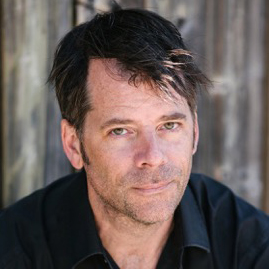About Me

I’m a second-generation Canadian (he/him) whose parents came to this country from different countries and cultures. I grew up living in both rural and urban parts of Southern Ontario and Northern Alberta. I’m basically a city slicker who knows the ’burbs and the sticks.
I come to psychotherapy from a creative perspective. I worked for 20 years behind the scenes of Canadian and international film and TV productions. I hold an honorary Production Certificate from the Emmy® Awards (picture editing) and have had the pleasure of working alongside some very talented and creative individuals in North America and Europe. (I’ve also had the pleasure of learning from a wide array of so-called “ordinary” folks, too.) I am also a novelist, short fiction writer, and essayist. I am a registered member of the Canadian Association For Psychodynamic Therapy (CAPT). I am also registered with the newly-formed College of Registered Psychotherapists of Ontario (CRPO).
I am quite familiar with the sharp edges of the working world (corporate and small business) and the many ways stressful situations and events can get through our defences. I can empathize with anyone who feels caught in a rut, or whose path — career or personal — or whose relationship with the world seems clouded.
What is Psychotherapy?
Therapy is a way to explore and process your thoughts, feelings, and experiences with the help of someone trained assist you in developing a better, healthier understanding of yourself.
It is a commitment to self-awareness, with an aim of building resilience.
Whether what you are experiencing has a name (depression, anxiety) or is defined by an event (divorce, unemployment), I provide you with a space to feel things out — connect with whatever it is that causes friction. I can also make room for clients who don’t want a long-term commitment or who may wish to communicate remotely (out of province, etc).
What type of Psychotherapy do I practice?
I practice relational psychotherapy. This is a client-centred, psychodynamic approach that emphasizes and explores our interpersonal relationships as a key to discovering what’s happening inside of us. The health and vitality of our relationships with others often impacts strongly on how we feel about ourselves.
This is a progressive and evolving approach to therapy informed by attachment and intersubjectivity theories, as well as self-psychological perspectives. It is inclusive and accepting: feminist, LGBTQ+ positive, pro-everyone. I take a whole-person/whole-system approach: your environment matters to me as well as your feelings.
I also incorporate new perspectives from neuroscience, somatic psychology and am influenced through social justice initiatives. I’m constantly curious about current research and critical approaches to mental and emotional health and attend seminars when possible; as a result sometimes I will recommend books or articles to clients that I feel might be helpful.
You don’t want a therapist who is the star of the show (i.e. the session ends up being about them and their larger-than-life personality); that might sound like fun, but not if you’re paying for it. While I certainly have my own style it ultimately comes down to attunement with the client. Talk therapy, regardless of modality, is a time-tested way to work through your thoughts and how they manifest in your behaviour; to dig as deep as you want in an empathetic environment where free and open communication is encouraged.
Who is Psychotherapy meant for?
From time to time, we all could use someone to talk with: to discuss patterns we notice in our behaviour, to share concerns about the way we think about the things and people in our lives.
The modality (or “style”) of psychotherapy I practice is geared toward people from all walks of life: women, men, investment bankers, bartenders, single parents, sex workers, therapists (!), tech workers, retirees, students, army reservists, plumbers… you get the idea. In short, it’s meant for you.
Who makes a good Psychotherapist?
Someone who not only listens, but who can work with you without judgement or blame. Someone who treats every individual or couple who comes into their office as that: individuals with innate human complexities—not a collection of symptoms.
A good psychotherapist is someone who will not try to package you into a “type”, or force you into an overly rational process which doesn’t tune into your emotions and sensibilities — the stuff that makes you unique.
What kinds of issues can you work with?
Anxiety • Depression • Loss/Grief • Trauma & PTSD • Relationship/Marital Problems • IPV • Substance Abuse • Shame • Self-Harm • Anger Management • Physical/Sexual Abuse • Family-of-Origin Conflict • Racism • Career Direction • Your Previous Therapist Was A Nightmare • Workplace Burnout, among other concerns.
What is your rate?
For my rates, please click here.
